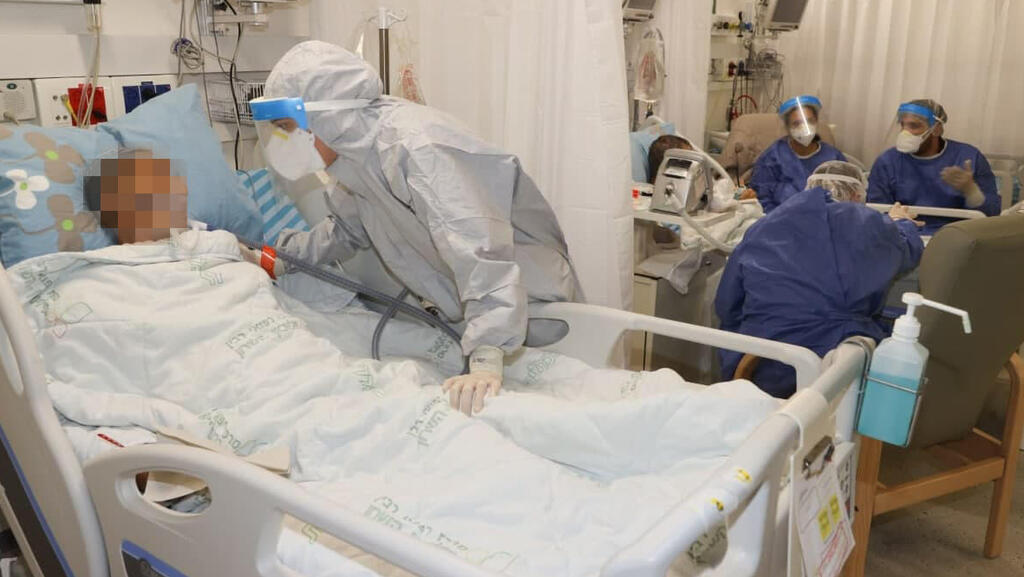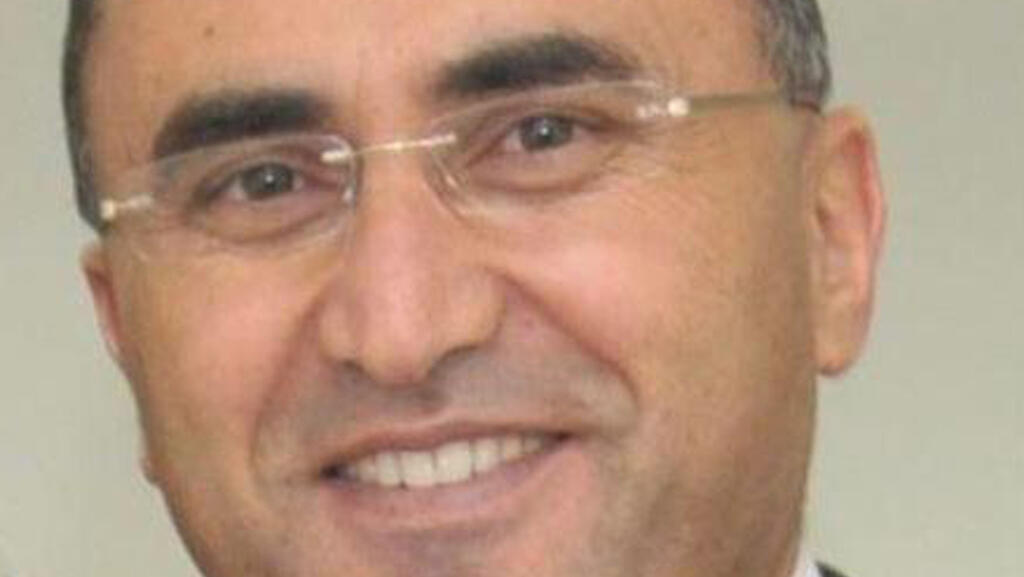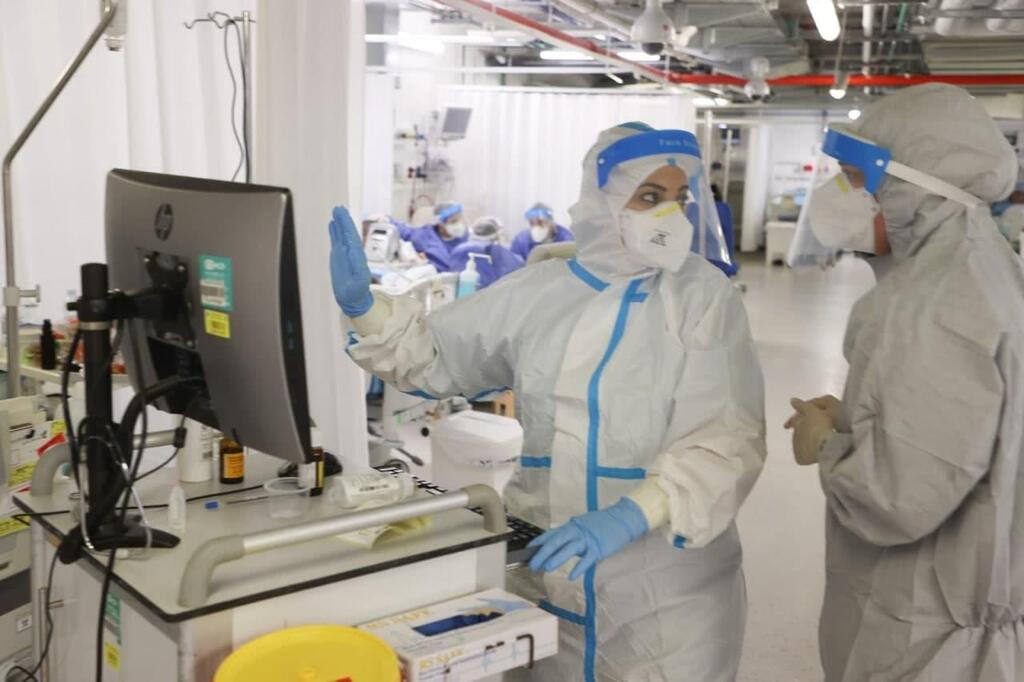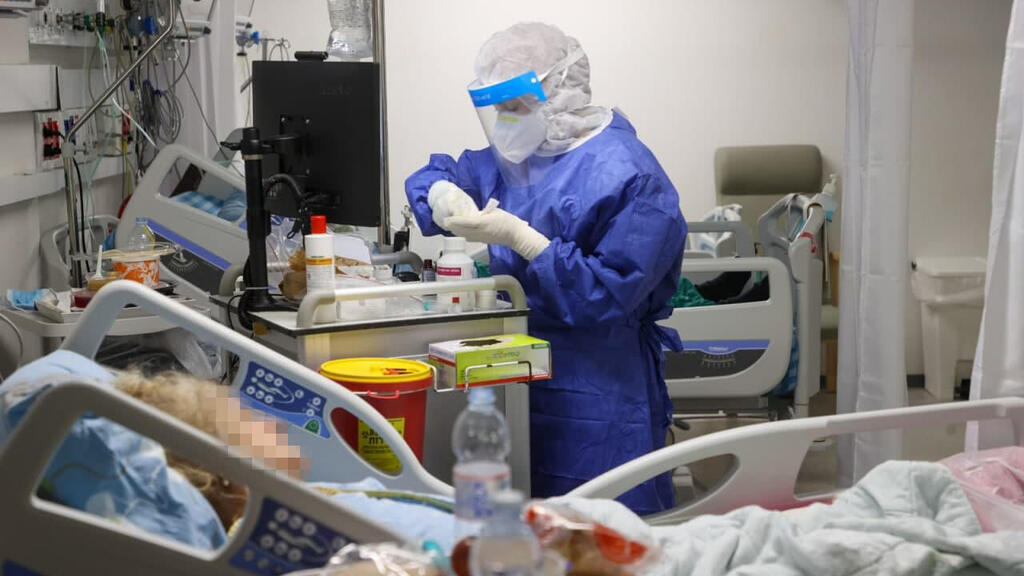Israeli hospitals report an eight-fold increase in the number of severely ill COVID patients, but there also appear to be some good news as the percentage of coronavirus-related hospitalizations looks to have stabilized.
The Health Ministry reported earlier that Israel's severe COVID-19 caseload has shot up to 888, but the head of the Kaplan Medical Center said on Wednesday the number of hospitalized patients has stabilized around 65-70 people on average.
"I don't see the same increase in the number of patients we saw last week," said Director of Kaplan Medical Center Dr. Tarif Bader.
"Saying overload is not enough, the hospital is full of both COVID patients and regular patients, but we do see the number of hospitalized COVID patients is stable around 65 to 70, and as of right now we have 66 patients, compared to two or three weeks ago when we witnessed an increase," he said.
However, Dr. Tarif also warned that there are quite a few elderly patients, and it could cause a surge in the number of deaths in the event their medical condition suddenly deteriorates.
In recent days, the number of people who succumbed to coronavirus did increase, and the average number is now around 35-40 deaths a day.
"The number of daily deceased is 40 times more than it was two weeks ago," the Health Ministry said. According to estimations, most of them died as a result of other underlying diseases.
The health system estimates that the Omicron wave is at its peak, and struggles with heavy loads of patients in the hope that they will soon begin to see a decrease in admissions. "Last week we physically had no room to put more beds in the emergency room. The entire area was full, including patients that were sitting, and at some ERs, we halted the entrance of ambulances for an hour or two," Dr. Tarif said.
Other hospitals across Israel describe the same situation: severe COVID-19 caseload along with a stabilized number of hospitalizations. "We have had a stable number of hospitalized patients for three days now," said Deputy-Director of Beilinson Medical Center Dr. Eran Rothman.
"It's not that there are no new patients, the emergency room is constantly packed with confirmed COVID patients, but we also constantly release hospitalized patients, so the rate of released and admission is the same."
Dr. Rothman also said that some hospitalized patients with coronavirus are released to home care if their health condition allows it, and the hospitals keep monitoring them or their family doctor.
"Overall, the situation is quite stable, this Omicron morbidity is more like typical winter morbidity, compared to previous COVID waves. If I look at the last three days, I would see we are around the peak of the Omicron wave, but the question is how long will it last?
"The peak may last a while, and only later we will see a decrease. We also may see a record number of hospitalized patients due to the high morbidity among the population, but if the estimations are correct, it is only a matter of two weeks or so, until the hospitals will also see a decrease, and that's our expectation and hope," Rothman explained.
In the meantime, the Health Ministry said 76,017 people tested positive for coronavirus on Tuesday, and after 348,235 tests had been conducted, the infection rate now stands at 21.83%. The official coronavirus death toll now stands at 8,502.





